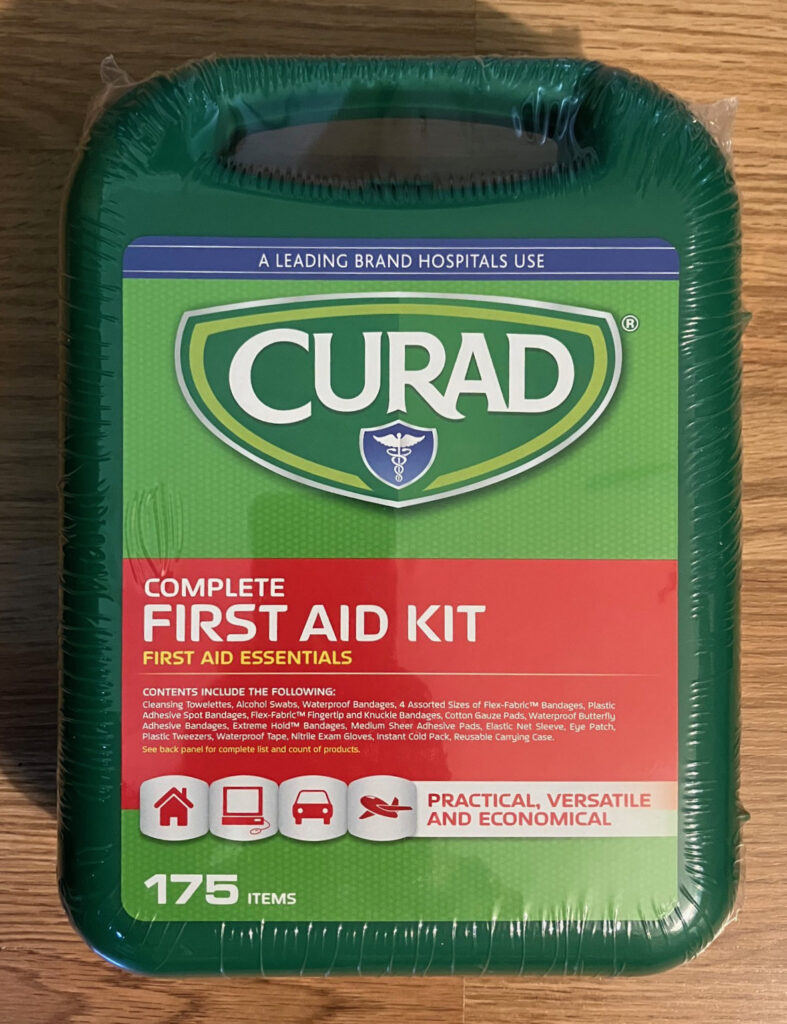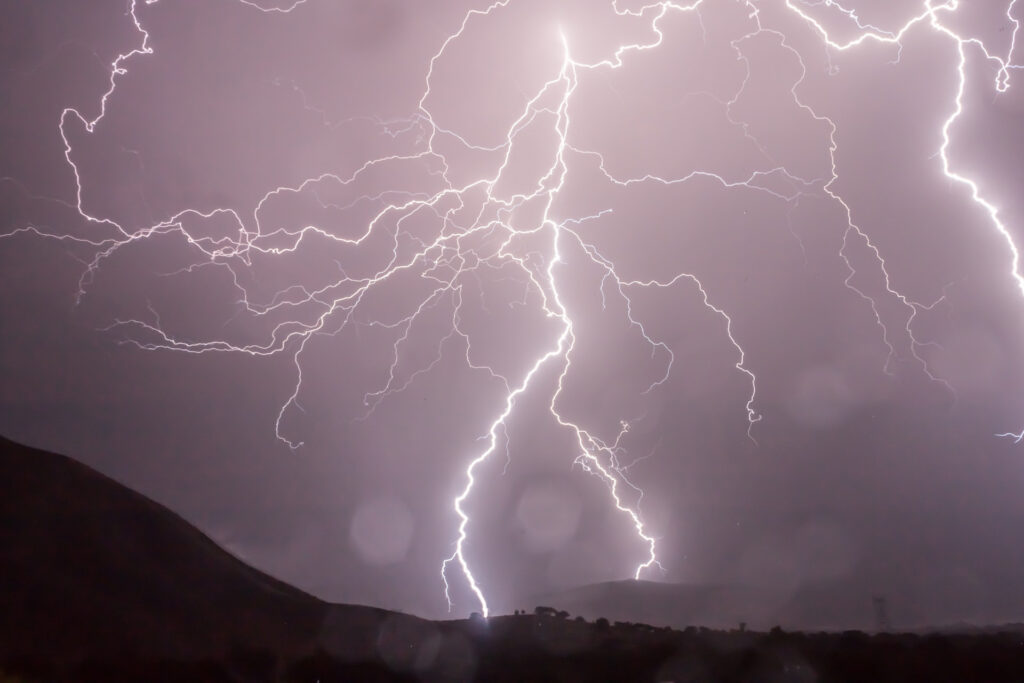
Photo by Wes Warren on Unsplash
A special message from Peter Young

Recently, Western North Carolina was struck by a weather disaster of historic proportions. Much of Asheville and surrounding areas sustained heavy damage to property and infrastructure. Some areas were all but obliterated.
Nobody is certain about when power and water will be restored throughout the region. Stay informed about relief efforts and conditions in the area.
Please avoid falling for and spreading all the misinformation circulating on social media. Pitch in to help your neighbors where and when you can.
Here is a list of resources from the North Carolina Department of Public Safety.
Wishing you and your loved ones a safe and speedy recovery from the storm.
Peter Young Home Inspections is open for business to take care of all your home inspection needs.
If you suspect your home was damaged in the recent hurricane, we are offering limited storm damage inspections, such as:
- Roof
- Exterior
- Basement
- Attic
- Crawlspace
Please call Peter Young at 828-808-4980 for pricing.
NOTE: For regular home inspections, please see our contact information below to arrange an appointment.
The time to prepare for disaster is NOW

Natural weather disasters can strike at any time, leaving homeowners scrambling to protect their family and their home. While we can’t prevent these disasters from occurring, we can take proactive steps to prepare our homes and minimize their impact to life and property.
In this post, we will discuss simple and effective ways to prepare your home for various natural weather disasters, including hurricanes, tornadoes, floods, and winter storms.
Here’s a readiness checklist of tasks to do before a weather emergency is breathing down your neck.
Let’s start on the outside of your home. These steps should be taken well in advance of a storm’s arrival.
- Trim trees and shrubs: One of the most important things you can do to protect your home is to trim any trees or shrubs near your roofline. Branches can break off during storms and crash down on your roof. Also, inspect trees that are within falling distance of your home. If they are old and appear weak and rotted, arrange for a professional to remove them. Falling trees can destroy your home and cause serious injury or death.
- Clean gutters and downspouts: Clogged gutters and downspouts can lead to water damage to your roof and cause flooding near entryways during heavy rain. Make sure gutters and downspouts are clean and free of debris.
- Secure outdoor objects: Put away any outdoor objects that could blow around in the wind, such as lawn furniture, toys, flower pots, hanging baskets, and garbage cans.
- Install storm shutters or storm windows: Storm shutters and storm windows can help protect your windows from damage during high winds and in the event of flying debris.
- Consider a whole-house generator: A whole-house generator can provide backup power during a power outage. These are expensive, but well worth the price if power is out for days. If you are considering a whole-house generator, be sure to have it professionally installed. Improper installation can cause serious injury or death. Click here to learn more about whole-house propane generators.
- Install a buried propane tank: A buried propane tank can provide a reliable source of fuel for your generator. Go for 500 or even a thousand gallons, if you’re looking for longer-term protection. This, too is costly, but can bring real peace of mind during extended outages. Some companies will sell you the tank, but many others rent it for a nominal annual price. If you rent the tank, then you must buy propane from that same company. Some companies will bury the tank as part of the deal, but others leave it up to you to find a company to do the deed.
- Install a propane heater that needs no electricity. If you’re burying a propane tank, why not have a propane heater installed in your main living area? Be sure it’s one that requires no electricity to operate. Empire heaters can operate as radiant heaters during power outages. They also have fans to help distribute the heat when the power is on. Do a search online for distributors in your area. NOTE: We recommend only direct vented heaters. And always have a carbon monoxide detector in the room with your heater.
- Prepare your fireplace or wood stove: If you have a fireplace or wood burning stove, be sure to have your chimney or flue pipe inspected and cleaned annually. Also, be sure you have enough wood stored to get you through several weeks in a winter emergency.
- Check your roof: Inspect your roof for damage after a storm. If you find any damage, be sure to have it repaired quickly to avoid additional property damage.
Interior home preparations

These are the steps we recommend for the inside of your home, and to be sure your family is prepared for emergencies.
- Develop an evacuation plan: If you live in an area that is prone to natural disasters, it is important to have an evacuation plan in place. Decide where you will go and how you will get there.
- Prepare your family: Talk to your family about what to do in case of a natural disaster. Make sure everyone knows where to go and how to contact each other.
- Assemble a disaster supply kit: A disaster supply kit should include everything you need to survive for several days without power or water. This kit should include food, water, first aid supplies, flashlights, a battery-powered radio, and a change of clothes.
- Change batteries in smoke detectors and carbon monoxide detectors: Make sure your smoke detectors and carbon monoxide detectors have fresh batteries.
- Stock up on supplies: Stock up on essential supplies, such as canned food, water, and batteries. If you have a gas stove, you can cook with it during power outages,
- Have a backup plan for communication: If your phone lines are down, you may need to use a backup method of communication, such as a satellite phone or a ham radio. A ham radio will require a source of electricity.
Some additional steps you need to take
Wait! You’re not done yet.
Once you’ve covered the steps above, here are additional recommendations to be prepared for weather emergencies:

- Stay informed: Stay informed about the weather forecast and any impending storms.
- Be prepared to evacuate: If you are ordered to evacuate, be prepared to leave immediately.
- Stay safe during a storm: If you are caught in a storm, stay indoors and away from windows.
- Sign up for emergency alerts: Sign up for emergency alerts from your local government. This will help you stay informed about any impending storms.
- Learn first aid: Learn basic first aid so that you can help yourself or others in case of an emergency.
- Support your community: Volunteer with your local emergency management agency or Red Cross. This will help you learn more about disaster preparedness and response.
- Stay calm and collected: If a natural disaster strikes, it is important to stay calm and collected. This will help you think clearly and make good decisions.
- Have a plan for flushing toilets if you have a well and the power goes out: If you have a well and the power goes out, your well pump will not be operational to provide your toilets (or the rest of your home) with water. However, you can still flush your toilet by using a bucket of water. Fill several five-gallon bottles with water before the storm strikes. Another trick is to fill your bathtub prior to the storm to fill your bucket. Test this out and be sure your tub drain holds the water. If it doesn’t there are drain plugs available at hardware stores. Just fill your bucket with water and pour it into the toilet tank to the proper level. This will allow you to flush the toilet and help to prevent sewage or septic backups.
- Never use portable propane or other fuel camping stoves indoors: Use of camping stoves indoor creates carbon monoxide, which can lead to serious injury or death.
By taking these steps, you can help to ensure that you and your family are safer and more prepared for whatever comes your way.
Buying or selling a home in Asheville?
Avoid unpleasant surprises! Contact Asheville Home Inspector Peter Young before signing any contracts. Call (828) 808-4980, or click here to make an appointment.